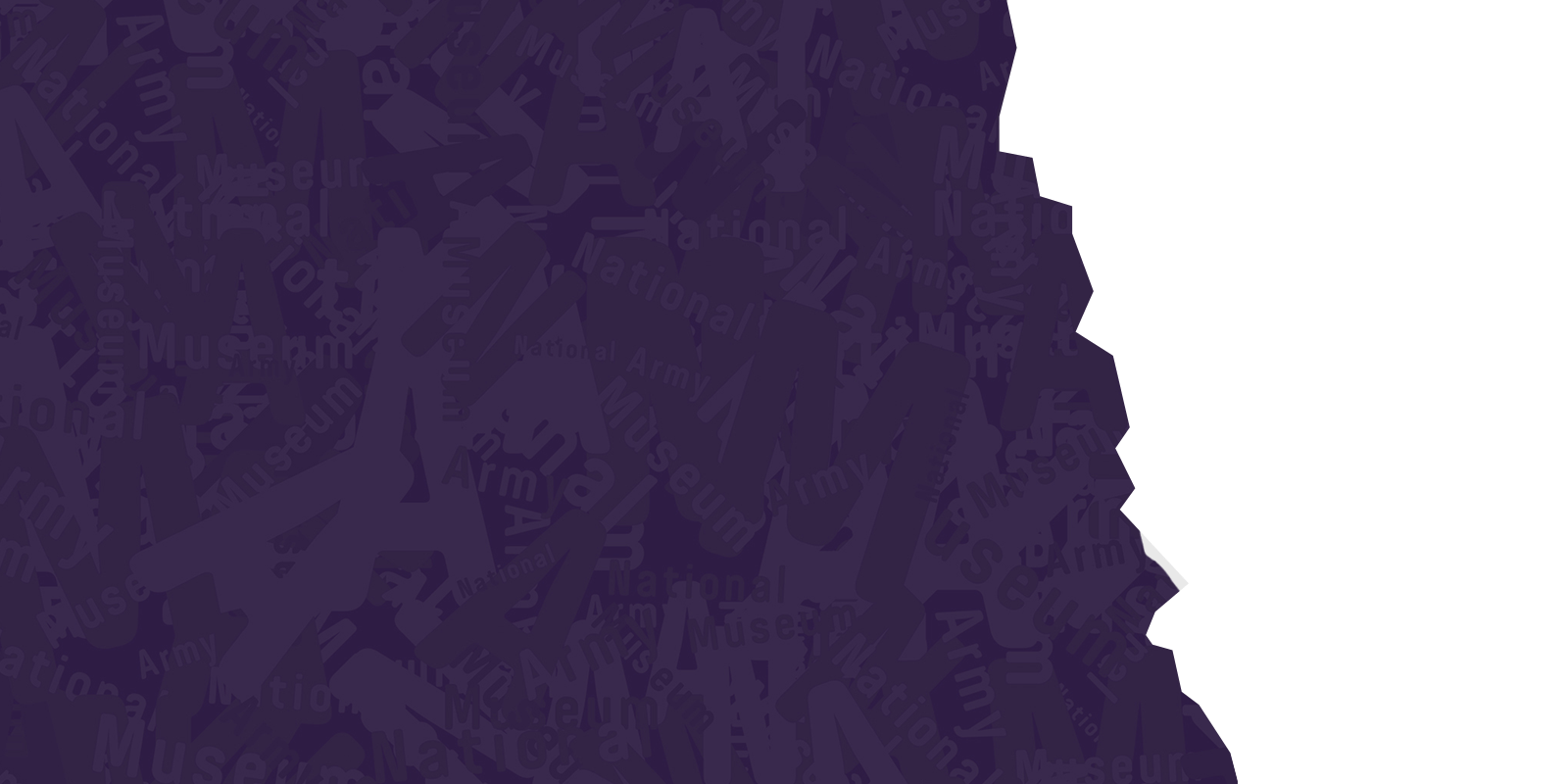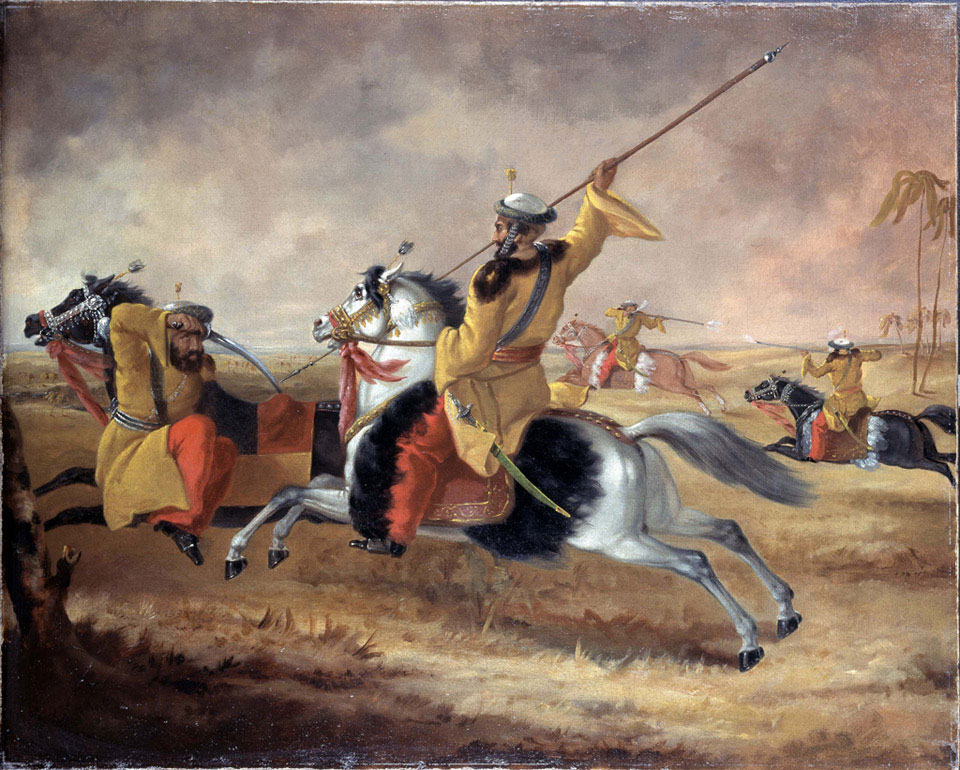
Online Collection
Skinner's Horse at Exercise, 1840 (c)
Oil on canvas by John Reynolds Gwatkin (1807-1877), 1840 (c).
Men of the 1st Bengal Irregular Cavalry (Skinner's Horse) or 4th Bengal Irregular Cavalry (Baddley's Horse) display mounted combat skills. One sowar (private) prepares to parry a thrust from a lance with a tulwar (curved sword), while hanging backwards over the neck of his galloping horse, one foot in a stirrup. Beyond, other 'yellow boys' fire on each other with jezails (long-barrelled Indian muskets) as they gallop along, controlling their mounts with their knees.
Both of these regiments were raised by Captain (later Colonel) James Skinner (1778-1841), the former in 1803 and the latter in 1814. In 1921 the two units were amalgamated to form the 1st Duke of York's Own Skinner's Horse. Little information survives as to the differences between the uniforms of the two units which wore the distinctive yellow kurtas (long coats) that prompted the nickname 'the yellow boys'. The son of a Scottish father and a Rajput mother, Skinner is believed to have chosen this colour after an ancient Rajput custom. The tradition held that warriors riding into battle would vow to win or die in the attempt. They would then anoint their faces with saffron and put on 'Clothes of the Dead', yellow robes tied over their armour with yellow sashes. The two regiments raised by Skinner were the only regiments in the British and Indian Armies to wear a yellow kurta.
The artist John Reynolds Gwatkin was the eldest son of Major-General Edward Gwatkin (1784-1855), who served in the Bengal Army from 1804 until his death in 1855. There was a family connection with the famous portraitist Sir Joshua Reynolds (1723-1792), after whom several members of the family were named.
NAM Accession Number
NAM. 1968-12-31-1
Copyright/Ownership
National Army Museum, Out of Copyright
Location
National Army Museum, A Soldier's Life Gallery
Object URL
https://collection.nam.ac.uk/detail.php?acc=1968-12-31-1

